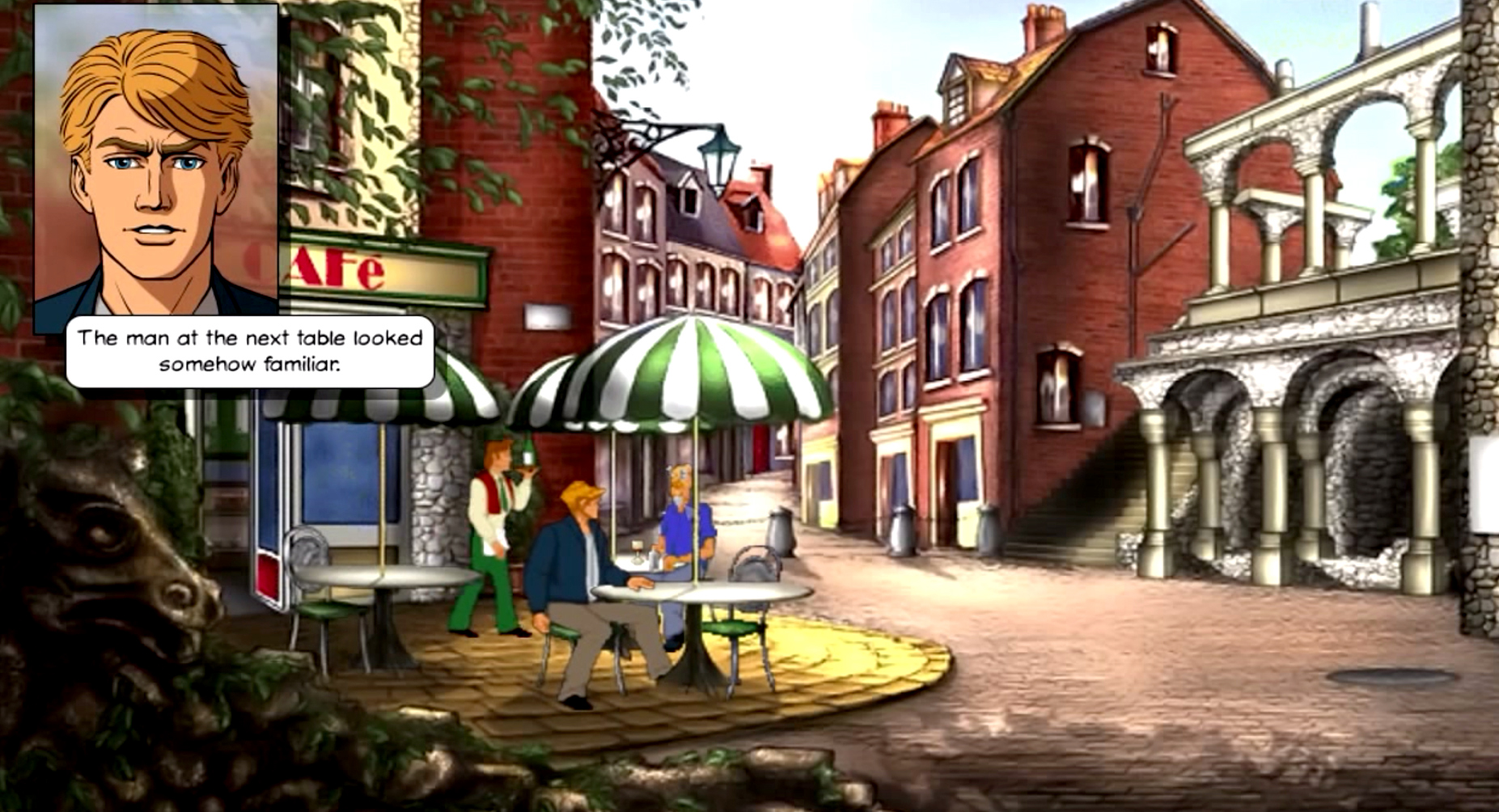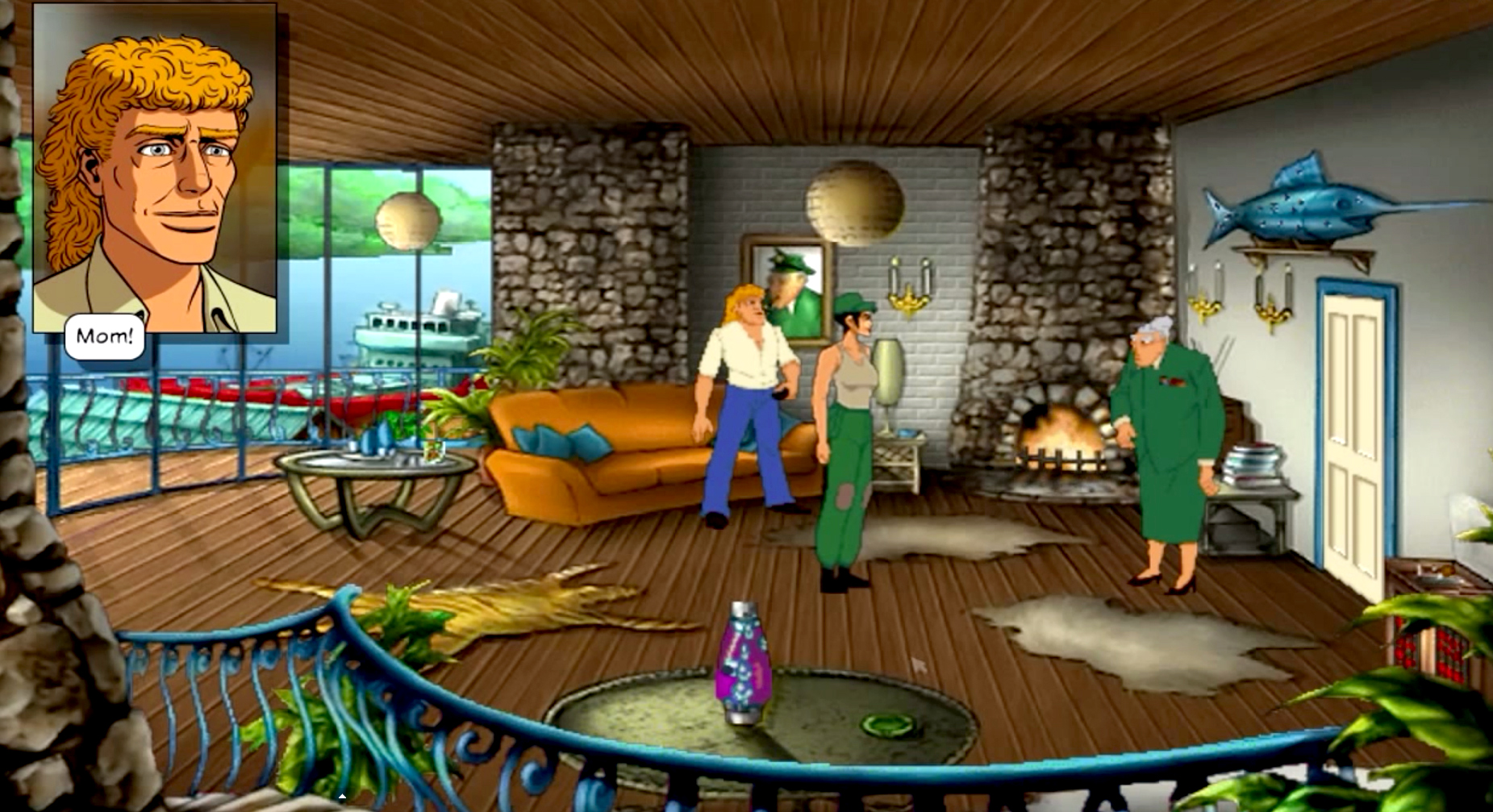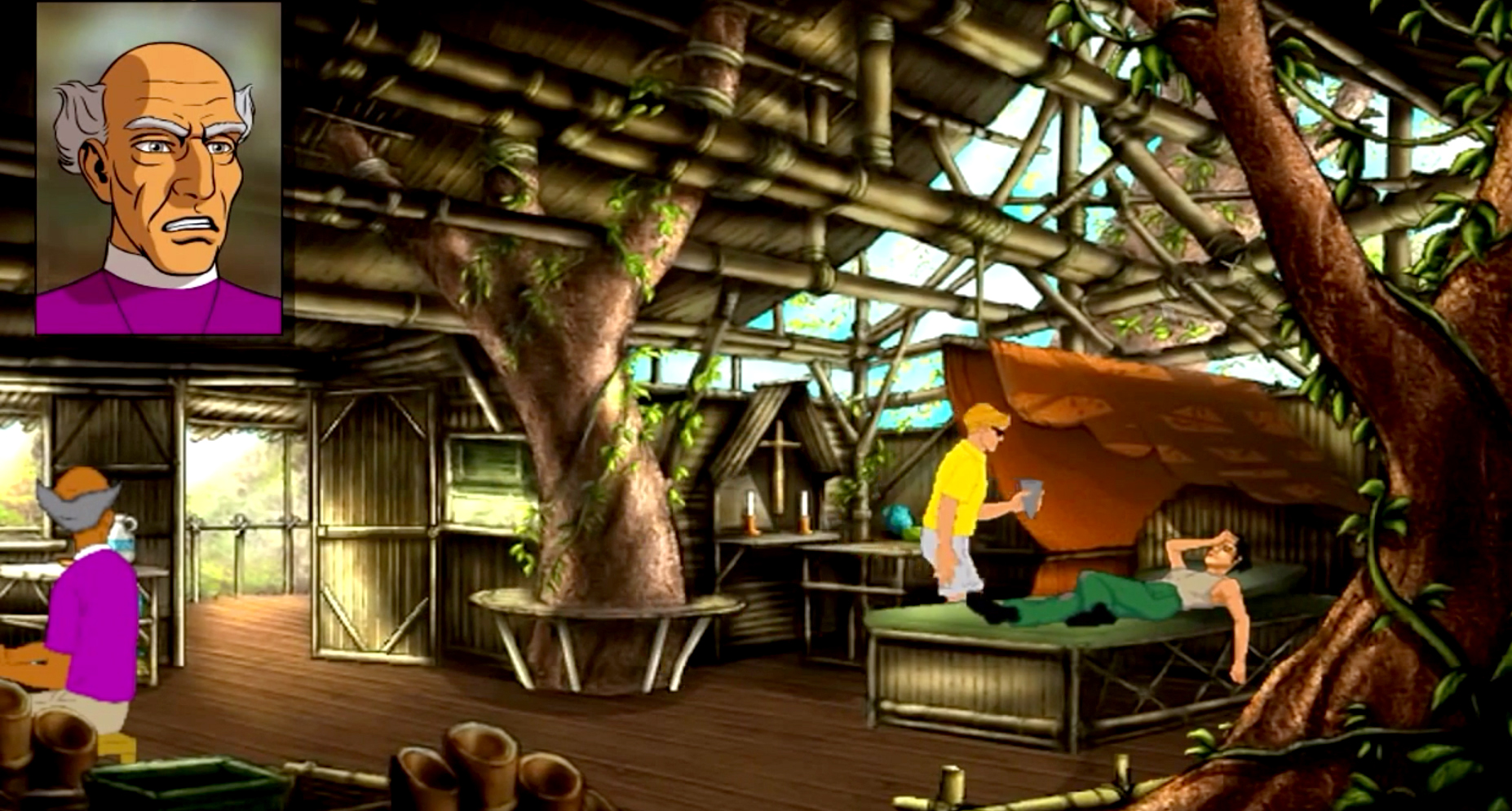Relatable characters and puzzles give point-and-click classic Broken Sword 2 its legs
Reinstall.

Reinstall invites you to join us in revisiting PC gaming days gone by. Today, Ben enjoys a dose of Stobbart snark in Broken Sword 2.
When I plucked Broken Sword 2: The Smoking Mirror's great big rouge box from the bargain bin of my local Comet as part of the two-games-free deal that came with my Hewlett Packard Pavilion (64MB of RAM and a 6GB hard drive) in the summer of 1998, it started a love affair with PC gaming. Here was a platform that complemented my consoles perfectly, home to sharp, adult, believable games like this. Well, believable in the sense you controlled a realistically proportioned man rather than a glove or bumblebee. Unlike most point-and-clicks of the time, The Smoking Mirror always played by the rules, and that's its abiding appeal.

You play George Stobbart, a goofball law graduate with a snarky inner monologue and a penchant for pithy observations. After the events of 1996's The Shadow of the Templars, in which he foils a conspiracy by a clandestine organisation looking to—what else?—take over the world, he meets up with his girlfriend Nicole Collard on the trail of a mysterious Mayan stone. It’s a bit like if Indiana Jones happened in reverse, with the religious one first and the treasure one next.
However, when she's kidnapped by two Central American thugs, George sets off to rescue her and puts into motion a globetrotting adventure spanning ancient temples, tropical hideaways, murky swamps, and exquisite museums. Before all that, though, he’ll need to escape from this burning building.
Tied to a chair, George notices a nearby bookshelf supported by a flimsy piece of wood. He gives it a swift boot and it collapses, revealing a metal hinge which the cocksure American uses to slash the ropes from his wrists. Combining a gas cylinder with a seltzer bottle looted from a nearby cabinet, he extinguishes the blaze and makes for the exit. It’s the first of The Smoking Mirror’s more grounded puzzles. As opposed to the cartoonish flair of '90s point-and-clicks such as Toonstruck, Monkey Island, and Day of the Tentacle, you’re not finding the answer to an inane non-sequitur but solving a real-world problem, a bit like changing a lightbulb or fixing a wonky table.
Consider a puzzle in the Paris docks. A surly watchman, "bulky like a sack of potatoes," stands between George and Nicole, giving his beans the occasional stir as they simmer on a stove in his shack, steam escaping through a metal pipe. What to do? Try hopping the chainlink fence and a growling bulldog comes out to snap at your heels. Approach the guard’s window and after yelping in fright (well, it is 4am) he’ll send you packing before dropping a discarded beer bottle into the river below. Descending nearby steps perfectly positions you to fish that bottle from the water.
Remember the metal vent? Pour the scummy water down there to smoke out the guard. This allows you to sneak in and pinch some dog biscuits (stick with me), bait the pooch onto a platform, then collapse it. Boom, the dog’s in the drink, and you can climb the fence. These small-scale riddles are satisfying to solve because they’re believable. It feels like you versus the world, rather than you versus the world designer. Even if the puzzles gradually grow in absurdity, their solutions always make sense. It's the most unhurried and methodical point-and-click I've played, and its lowkey, dialogue-heavy style requires good characters to interact with.
These small-scale riddles are satisfying to solve because they’re believable.
Smoking Mirror is full of them. Early on there's an encounter with Andre Lobineau, Stobbart's love rival, in a Paris cafe. Nothing much happens, and that's what's so effective. This is a nuanced, simmering conversation—not an interrogation, or a probe, or a robotic exchange. You can really get a sense of Revolution Software co-founder Charles Cecil's intent behind the dialogue system, made cinematic by never giving players an explicit sense of what George is going to say.
Keep up to date with the most important stories and the best deals, as picked by the PC Gamer team.
Instead of choosing specific lines, you select icons representing broad topics. Throughout the game you'll accrue various items, including a pot, a chocolate bar, a lucky lump of coal, maple syrup and a pair of red nylon panties. At one point you get to offer a man called Raoul a doggy treat. "Are you trying to bribe me?" Raoul asks. "Well, every man has his price," says George. "Mine is more than a dog cookie," a disgusted Raoul replies in a thick Spanish accent.

Upon showing a tequila worm to a cat, George says, "It looked at me as if to say, 'Why have you brought a dead worm halfway around the world?'" One way or another these items all have an application. The panties, for instance, are used to grip a hot doorknob so it doesn't burn your hand, which, when you think about it, makes a kind of sense.
So, is it worth a reinstall? While it's lasted better than the majority of games released in the late '90s, Broken Sword 2 is showing its age. Character heads that appear in the corners of the screen flit between just one or two expressions, which disengages you from the conversation, and voices are poorly synced to them. Thankfully, Watchmen co-creator Dave Gibbons' wonderful hand-drawn backgrounds endure despite their blurriness today.
I've always suffered from point-and-click fatigue, and while The Smoking Mirror is better paced than most, at roughly seven hours it's overlong. Towards the end it starts to feel like you're simply talking to characters in order to exhaust their dialogue. The deliberate pace that serves so well to ground it in the early stages starts to drag in the latter. In particular George paces around like he's perusing a library.
Although its 2014 sequel, The Serpent's Curse, looks a whole lot prettier, Smoking Mirror represents a high point for classic adventure games thanks to consistent puzzles and relatable character-driven drama, while still not being too up itself to include a section in which you have to feed a shaman dog biscuits.

